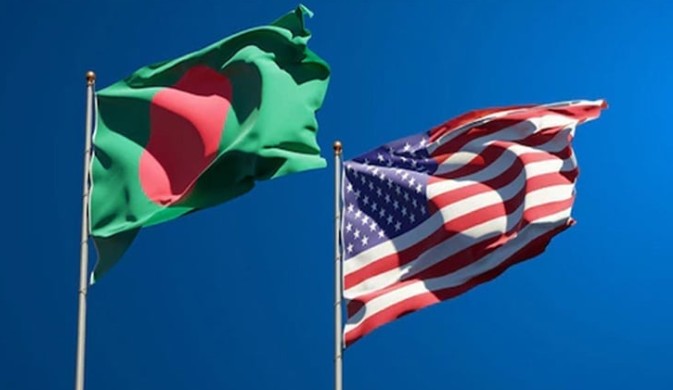The ongoing tariff negotiations between Bangladesh and the United States extend beyond the scope of trade and focus on national security and Bangladesh’s diplomatic relations with other countries, said Energy Adviser Muhammad Fauzul Kabir Khan on Sunday.
Following the second round of high-stakes tariff talks, which ended without a final agreement on Friday, the two countries have agreed to continue discussions in the coming weeks.
The talks centered on the proposed 35 percent reciprocal tariff on Bangladeshi exports, set to take effect on August 1.
Speaking at a press briefing at the Secretariat, Fauzul Kabir Khan clarified that the US is prioritising broader geopolitical concerns in these discussions, with a focus on Bangladesh’s diplomatic ties with other nations.
“The US is not only concerned with tariffs, but it is also considering how we manage relationships with other countries,” he said, referring to the wider framework under which the talks are being held.
The ongoing discussions include both tariff and non-tariff issues, with the US demanding that Bangladesh’s exports meet 40% local value addition to qualify for the “Made in Bangladesh” label.
Industry leaders have raised concerns that achieving this threshold, especially for woven garments, will be difficult given Bangladesh’s reliance on imported Chinese fabrics.
Fauzul Kabir Khan emphasised the complexity of the discussions, stating that they are not limited to trade issues. “This is not just about tariffs; it’s also about our positioning on the global stage,” he said.
He added that the negotiations are part of a broader effort to align Bangladesh’s economic interests with its diplomatic relationships.
The adviser also reassured the business community, saying that top business leaders have been consulted to ensure they are kept informed of the ongoing developments. “We have consulted with leading business figures, and their feedback is being incorporated into the discussions,” he said.
While the tariff issue is still unresolved, its immediate impact is already being felt in the country’s export sector, particularly in the ready-made garment (RMG) industry, which faces significant challenges.
Major US retailer Walmart has suspended and delayed several orders due to the uncertainty surrounding the tariffs. Industry insiders warn that unless the issue is resolved soon, Bangladesh could lose 25% to 30% of its exports to the US, which could have severe economic consequences.
Fauzul Kabir Khan reiterated that the government is committed to finding a resolution, but he emphasised that the talks also focus on broader trade and diplomatic relations, which could have long-term implications for Bangladesh’s economic future.
Analysts interpret the US push for Bangladesh’s diplomatic relationships to favor US geopolitical interests as potentially detrimental to Bangladesh’s relationship with China.


